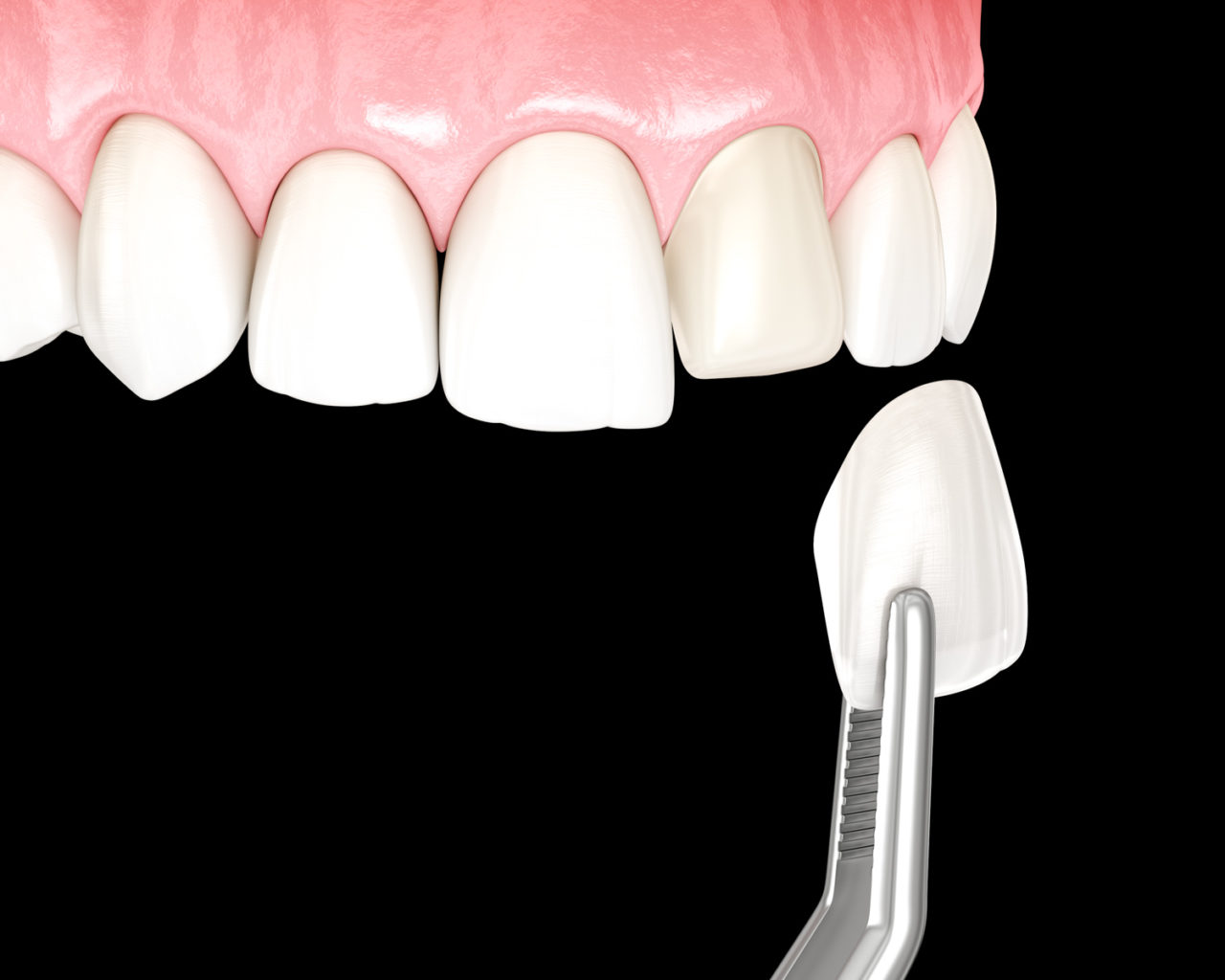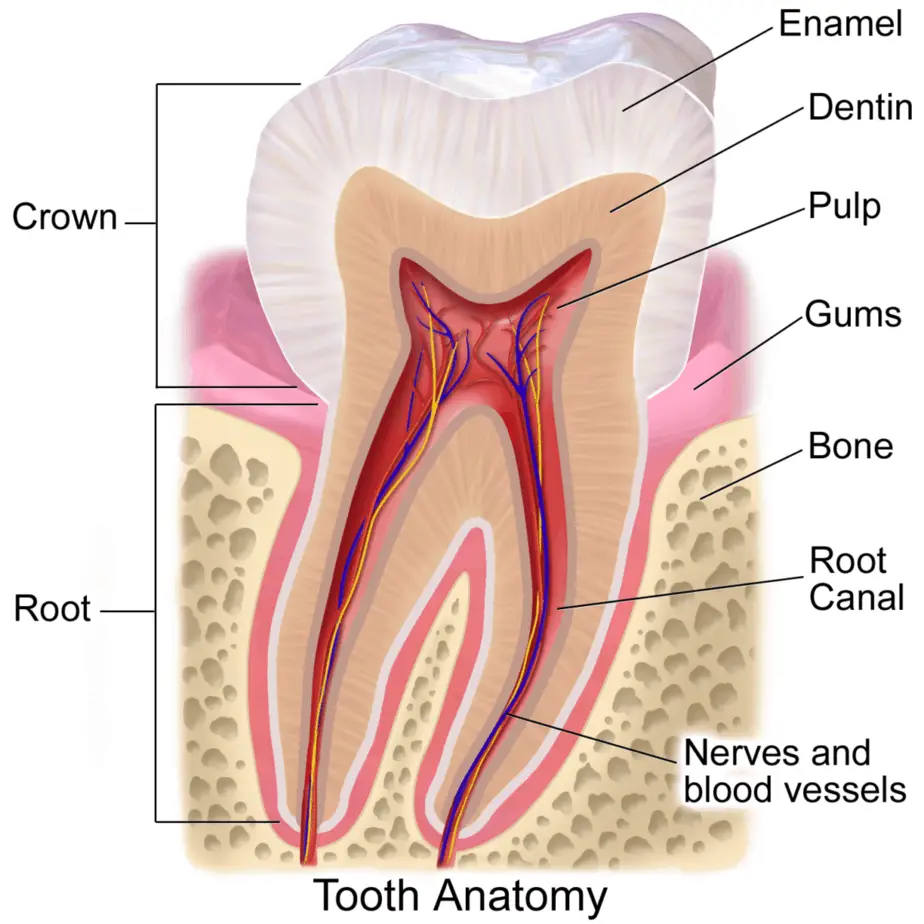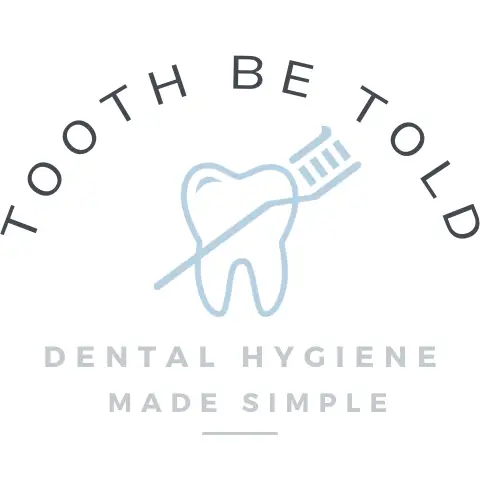
With cosmetic dentistry becoming more popular, dental veneers are among the most popular cosmetic dentistry procedures. Many patients who sit in my dental chair ask me about veneers to improve the appearance of their smile, and they want to know if veneers ruin their teeth.
Dental veneers do not ruin teeth. However, they are irreversible; natural tooth structure is shaved down to accommodate the veneer. Every time a veneer is replaced, more tooth surface is lost. Over time, teeth may need full crowns or root canals. Dental veneers can last 10-20 years if taken care of.
Dental veneers have their pros and cons, and it is crucial to fully understand the risks and long-term commitment of veneers. It saddens me to see so many people opt for a treatment just because they see it on tv and social media or pushed by a dental professional without explaining the risks.
In this post, I cover all the effects dental veneers have on teeth that you need to know, and a few other essential things to know: are veneers permanent? How long do they last, how to make them last longer, and what happens to teeth under the veneers!
Dental Veneers effects on teeth; do they ruin teeth?
Dental veneers are much more invasive on the teeth than most people like to say or talk about.
It’s no secret that dental veneers cost a lot of money, and due to that reason, sometimes veneers may be pushed by dental professionals (I’ve seen it many times, unfortunately). Sometimes, a complete overview of what happens to the teeth to fit dental veneers and the long-term effects are not fully explained.
Dental veneers do not ruin teeth but are irreversible.
To place a dental veneer, the tooth needs to be shaved down for the veneer to sit flush with the teeth beside them.
Tooth structure that is shaved down/removed can never grow back, and every time a tooth is drilled into, there is a chance that the nerve can be affected, and start to die, eventually causing the need for a root canal. Although this is very rare, it’s important to note that it can happen.
It may not happen on the first veneer application. Still, when veneers are replaced, more tooth structure is removed to allow for better bonding between the veneer and tooth surface, increasing the chance of affecting the nerve of the tooth and veneer failure.
The nerve being affected is not the only risk of veneers.
Understanding how veneers are attached to teeth is essential to know if you consider getting veneers. And how veneers are attached to the tooth affects the tooth surface, longevity and success rate.

The tooth has multiple layers,
- white enamel; acting as a stong helmet on the outer layer of the crown
- yellow dentin; underneath the enamel layer
- pulp chamber; in the middle of the tooth that houses the nerves and blood vessels
Like I mentioned earlier, to place veneers, the tooth is shaved down to allow for space (so the veneer isn’t too bulky, pushing out on the lips), losing precious enamel, and maybe removing all that’s left, leaving the dentin exposed.
Dentin is much softer, and it is much harder for the veneer to bond to than enamel.
If enamel is minimal or non-existent due to natural reasons or previous veneer application, this study shows that when porcelain veneers are bonded to the dentin, the lifespan of the veneer is reduced. This means that the veneer will not last as long and may need to be replaced sooner.
Bonding to enamel is a critical factor for survival, so this means that the more times veneers are replaced, their survival rate reduces, requiring more significant treatment such as full crowns, and even surgery for a crown lengthening procedure that the crown can adhere to.
When discussing dental veneer treatment with my patients, I am honest with them if dental veneers are a good option or not. Generally, the younger the patients, the more I emphasize long-term effects as the dental veneers may need to be replaced multiple times in their lifetime.
Sometimes veneers are an excellent idea, and the benefits outweigh the risk and will help boost the patient’s confidence.
Veneers can have a lot of benefits, such as;
- cover-up discolourations, chips and cracks
- prevent stain (less susceptable than natural tooth structure)
- less invasive than dental crowns/bridges
- fill in gaps between front teeth
- fix appearance of mishapen teeth
- boost confidence
I know what a life-changing smile can do to you, it happened to me. I never want to hold back a patient from having that experience, but I would like them to fully understand the possible consequences and life-long commitment of dental veneers.
If a patient of mine would really benefit from veneers, then I say go for it!
Are veneers permanent? How long do they last?
Dental veneers are permanent. Dental veneers are made of porcelain or composite and are attached to the front surface of the teeth by dental cement, lasting 10-20 years. Tooth structure is removed before the veneer is cemented to sit flush in line with the adjacent teeth.
However, dental veneers are not invincible and can fail and fall off. There are many reasons why veneers fail. They are linked below;
Read Now: Why Do Veneers Fall Off? 9 Reasons! Hygienist Explains
Veneers can fail earlier due to complications. Wear and tear result in chips and cracks requiring the veneer to be replaced earlier.
I have had patients who got veneers and did not care for them. Their oral hygiene was not good, and they liked to bite into hard, sticky things, causing them to break and chip. Sometimes veneers may last one year if not taken care of, but that is one extreme end of the spectrum!
If the veneers are falling off due to poor bonding, the dentist should re-bond it for a minimal or no charge since it was most likely their poor technique of bonding, for example, too much moisture on the tooth.
Porcelain laminate veneers offer a predictable and successful restoration with an estimated survival probability of 93.5% over 10 years
https://pubmed.ncbi.nlm.nih.gov/22259802/
How to make veneers last longer; 9 ways
- have a good oral hygiene routine,
- flossing once a day and brushing twice a day
- using fluoride/nano hydroxyapatite products
- prevent against tooth wear and cavities
- avoid chewing ice cubes
- avoid biting into hard foods such as carrots
- avoid ripping/tearing food
- such as sandwhiches with tough bread th
- never use front teeth to open packages, or cut tape
- do not chew on foreign objects
- such as pens/pen caps
- do not bite fingernails
- wear a dental night guard
- only applicable if you clench/grind or have temporomandibular joint (TMJ) issues
Taking care of veneers can increase their longevity by up to 20 more years; I have seen some patients who have had their veneers for over 20 years!
Read Now: Can You Fix a Cracked Dental Veneer? Hygienist Explains
I hope I have given you some insight into dental veneers. If you are concerned about getting them, I suggest having multiple opinions from different dentists. Ask them to show you pictures of their previous work to get an idea of what you will be getting.
Have a wonderful day,
Holly 🙂
